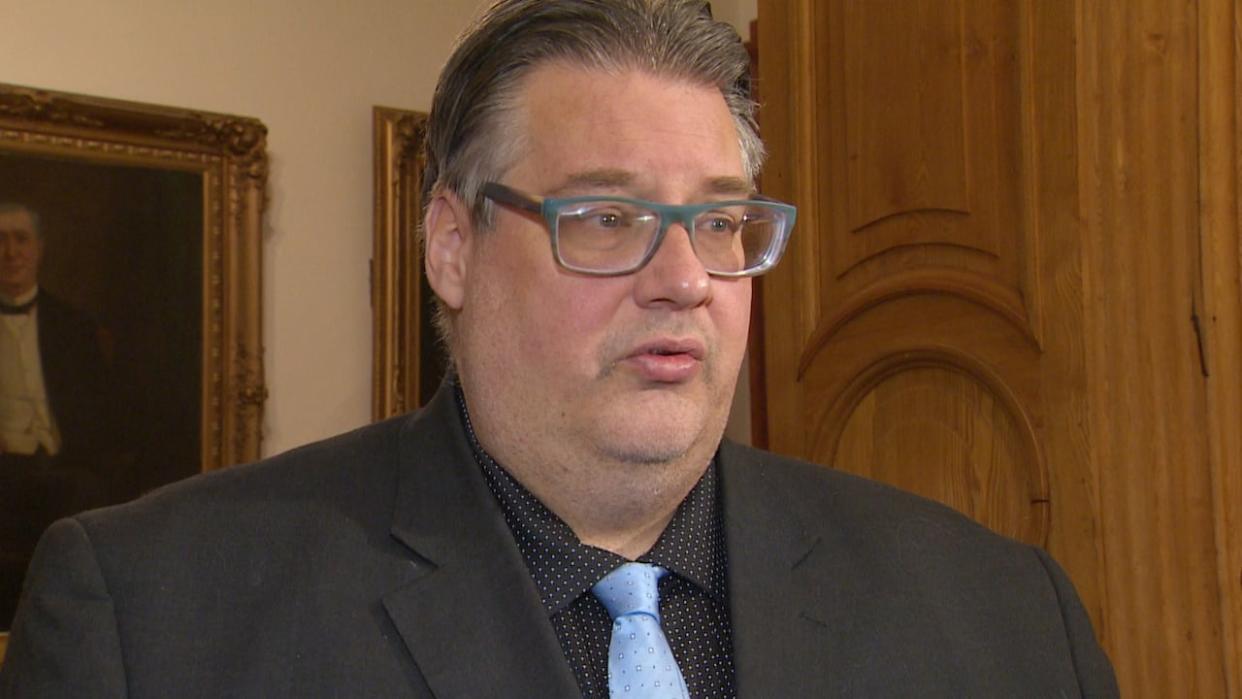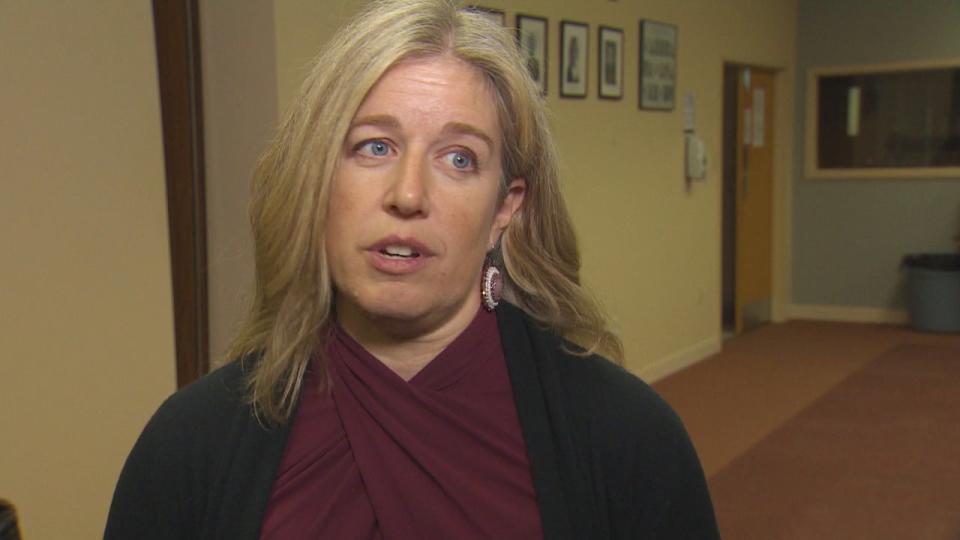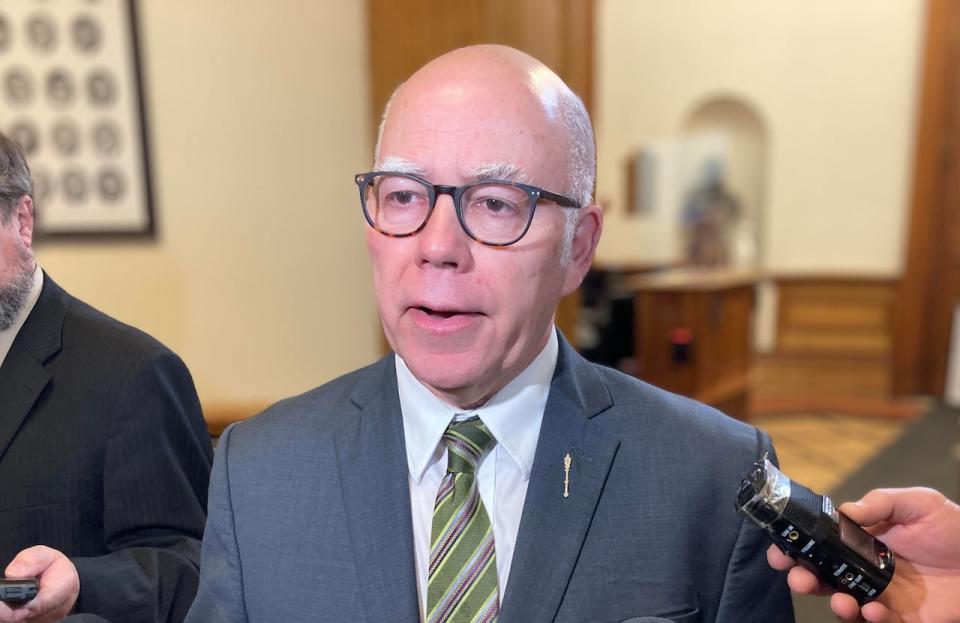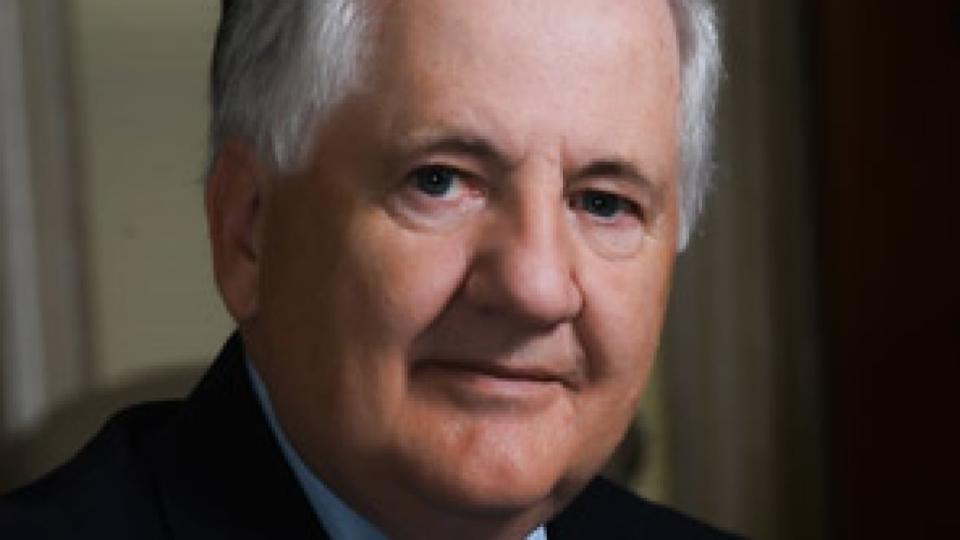Opposition leaders endorse Lamrock findings but report's future not clear

Kelly Lamrock's call for sweeping changes to government policy-making now faces the same uncertain future as other major reports: will it get implemented?
Opposition parties were quick to agree Monday with the findings of the 49-page document released Monday by the child, youth and seniors' advocate.
But it was less clear that the report will — or even can — spur a dramatic reorientation of priorities.
Opposition Liberal Leader Susan Holt said her party agreed with the "overall concept" but would be "exploring" the specific recommendations, which, she said, could not be easily put into effect in a single four-year term.

Liberal Leader Susan Holt says she agreed with the concept of the Lamrock report, but implementing changes is difficult over a four-year period. (Ed Hunter/CBC)
"It's a philosophical change to how we govern," she said.
"It's about putting people before protocol, and it's about introducing a level of flexibility and a bit of a decentralization to how we govern, which requires courage."
She said Lamrock's report will have an impact on how the Liberals govern if they win this year's election.
Green Leader David Coon said he would implement the report if he became premier but he was not optimistic the other two parties would.

Green Leader David Coon says his party would implement the report, but he's not sure if other parties would. (Jacques Poitras/CBC)
"It takes leadership to make these changes, and that leadership is not in place," he said.
In a statement, Premier Blaine Higgs said the government will examine the report and is looking forward to a second report from Lamrock this week addressing "core issue" in the long-term care sector.
"We understand that reviews such as this often grow in breadth and depth and end up with a cross-departmental lens to the issue at hand," the statement said.
"Unfortunately, there were limited conversations with government leadership, and ministers, on what was included in this ad hoc report."
Lamrock, a former cabinet minister himself, released the report, How It All Broke, in an attempt to diagnose why a range of provincial social policies and programs appear to be in crisis.
He said he decided to issue a broader report after seeing common issues in several departments he has examined.
Lamrock's report says a culture first put in place three decades ago forces government departments to strictly follow rigid program rules while never having to account for whether the rules actually help, for example, more people get off social assistance or find spots in long-term care.

The Lamrock report called out government culture that becomes entrenched over administrations. (Guy LeBlanc/Radio-Canada)
The report points to examples like the provincial finance department not being able to say how many people were being transferred from hospitals to long-term care because no goals had been established — just an amount of money allocated.
It flags the lack of any forecast for how many children will need the services of school psychologists — a workforce plagued with shortages — in the coming years.
Lamrock says the province's Executive Council Office and Finance Department – which now share a single deputy minister – should be separated, with a new social policy unit playing a major role.
Researcher says problem goes way back
Donald Savoie of the Université de Moncton, one of Canada's leading experts on public administration, said Lamrock's report reflects what researchers in the field have been saying for years.
Savoie says, however, that Lamrock is wrong to date the focus on rules and budgets to three decades ago. It goes back to Victorian times in the United Kingdom.
"The problem is as old as the study of public administration," he wrote in an email.
"In every case the approach or approaches failed. In every case and in every jurisdiction throughout the western world, governments are still trying to fix it."

Donald Savoie, an expert on public administration, said Lamrock's report reflects what researchers have been saying, but added that the problem is larger than just New Brunswick government. (CBC)
Savoie also disagrees with Lamrock's suggestion that rethinking the centre of the New Brunswick bureaucracy is the solution.
Instead, he says moving the legislature away from partisanship and closer to its role of holding the cabinet accountable is more likely to have an impact.
"Change how partisan politics works and you may have a chance of changing how the budget process works and how government decides," Savoie said.
"It is a case of telling the legislative assembly, the premier and cabinet: heal thyself before you try to heal anything else."
Lamrock told reporters Monday that the system is difficult to change — even for former ministers like him who arrive in office thinking they can just tell officials to adopt new approaches.
Instead, ministers arriving in their departmental offices for the first time are presented with a stack of binders.
A potential 'guide'
"What the briefing binders tell you as a new minister is all the lines you can use with the press to justify all the everything that's already happening. And you realize, 'Oh, right — the machine keeps going.'"
He said he hopes the report will be "a bit of a guide" to new ministers, aspiring premiers, future deputy ministers and even journalists who may use it to look for better ways to do things.
Stephen Drost, New Brunswick president of the Canadian Union of Public Employees, said Lamrock's report echoes what union members experience.
"Not surprised whatsoever," he said. "Really glad to see it come out. This is something CUPE has been saying for years, and I mean for decades: it's not the workers, it's the system itself.
"You have to stay within very restrictive parameters and you can't actually provide the actual services that the public deserve."

 Yahoo News
Yahoo News 
